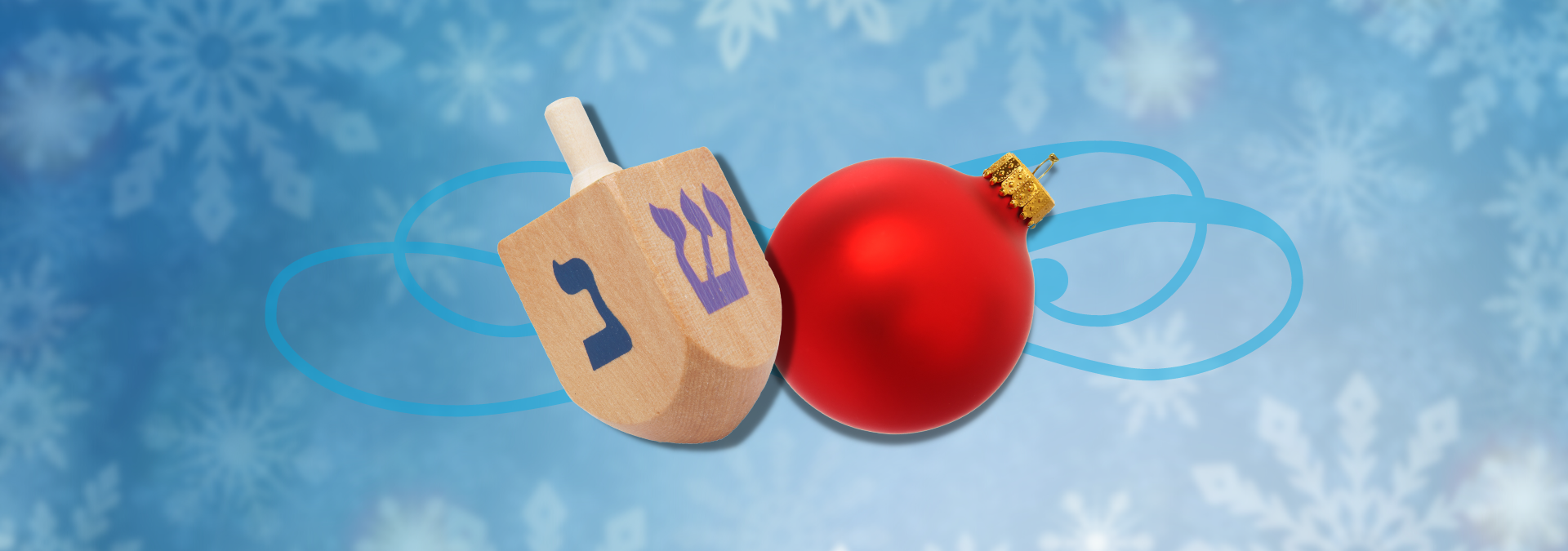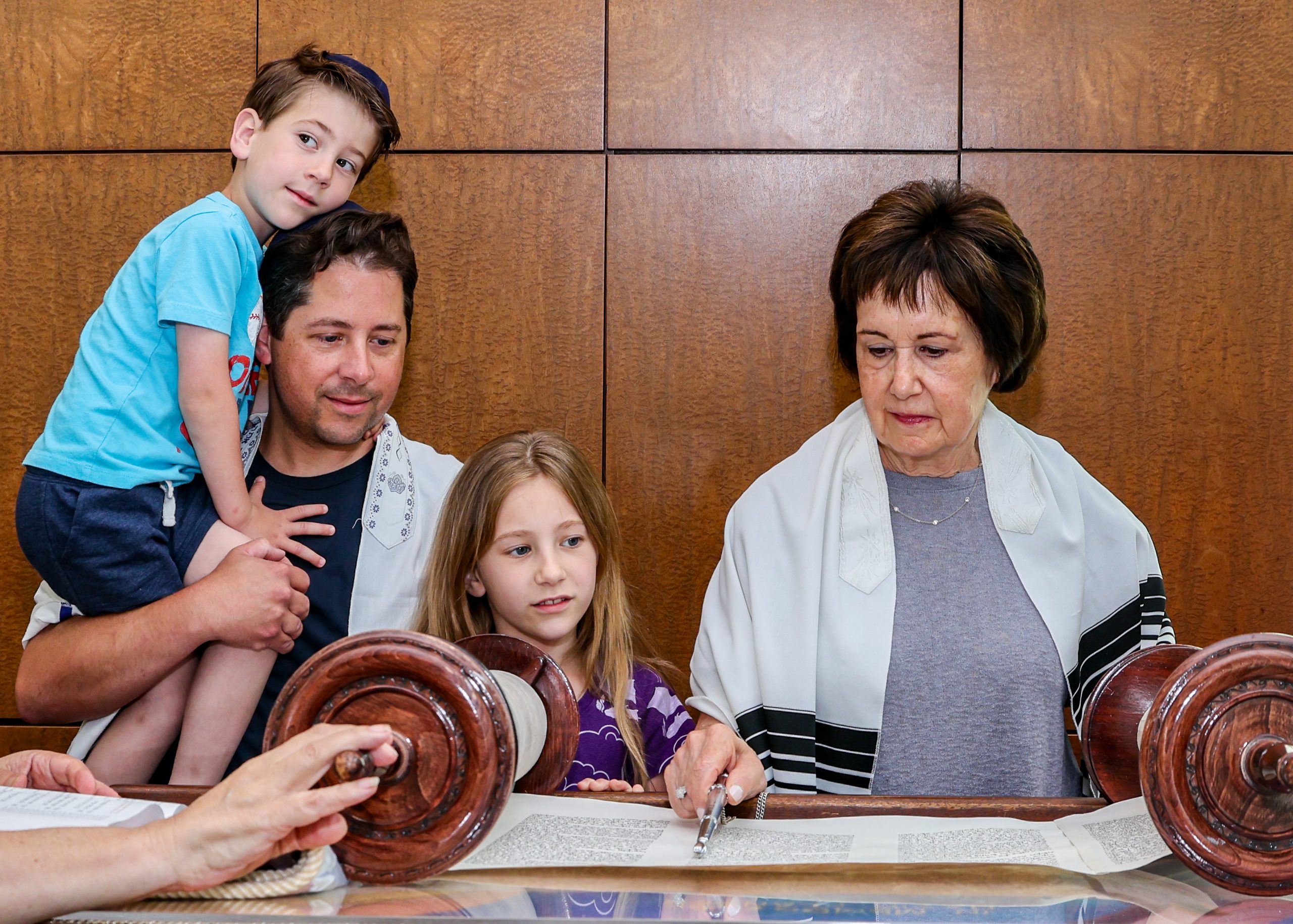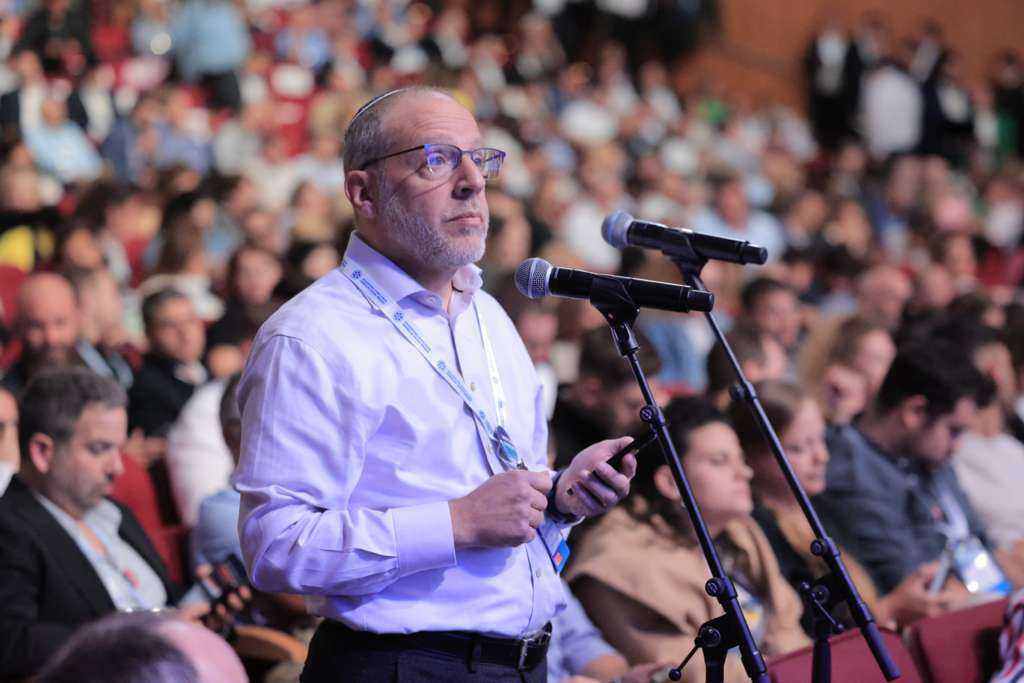
The proximity of Hanukkah and Christmas contributes to a social phenomenon labeled the “December Dilemma.” The phrase signifies the tensions and decision-making that couples and families face regarding reconciling different faiths and traditions at a particular time of the year. These can include friction with parents, the complexities of raising a child in a single faith by people of different backgrounds, the emotions of the parent and grandparents in whose religion a child is not being raised, how to decorate, where to celebrate, and what to eat, when.
Reframing the “December Dilemma” as the “December Delights” helps couples, families, congregations, and communities to see the winter holidays in a new light. It encourages everyone to focus on celebrating differences rather than diminishing them. Jewish families with members of other faith backgrounds can navigate this interfaith terrain successfully with guidance from clergy, professionals, and lay leaders who are equipped to encourage open dialogue and support changes over the life course. Experts advise couples and families to have these conversations well in advance of the holidays, ideally at a different time of year. Rabbi Robyn Weiss Frisch, director of the 18Doors Rukin Rabbinic Fellowship, crafted questions to be used as conversation starters for couples and for parents. These questions, lightly edited from a Conservative Jewish perspective, can be shared with synagogue leadership and members.
Conversation Starters for Couples
- It can be helpful to start by each individual sharing how you each celebrated the winter holiday(s) growing up. What childhood memories do you have of celebrating the winter holiday(s)? What was the most meaningful, memorable and/or fun part of the holiday(s) for you? Did you see the holidays as religious, spiritual, cultural or something else?
- Take a minute to reflect on how you’d like to celebrate now that you’re an adult. Do you hope to replicate parts of the holiday experience you grew up with? What aspects and why? How important is it that your partner participates in holiday celebrations together with you?
- Being in an interfaith relationship brings with it joys and challenges. What is the most meaningful or fun thing about celebrating the winter holiday(s) that your partner grew up celebrating? What is challenging for you about it? What is it like celebrating your partner’s holiday(s) in your home compared to celebrating at their parents’, other relatives’, or friends’ homes?
- It can sometimes be difficult to manage family dynamics as an interfaith couple. How do you feel about talking to your parents and your partner’s parents about the decisions you and your partner are making about your own choices regarding holiday celebrations?
- Will your holiday celebration(s) be different this year, and if so, how? How do you feel about this? Will you miss anything from past years, and if so, what?
- For Jewish and Christian couples: How do each of you feel about possibly having a Christmas tree in your home? Do you think that your answer will be different if you have kids? What does a Christmas tree represent to you (e.g., a religious symbol, a fun memory from childhood with no religious significance, etc.) and why?
- Where will you light candles and position the hanukkiah that is distinct?
- How can you celebrate Hanukkah and Christmas in ways that will respect the history, meaning, and sanctity of each rather than blending them?
- Who will be responsible for the domestic labor involved in holiday celebrations in ways that encourage egalitarianism?
Conversation Starters for People with Children
- What do you remember most about the winter holiday(s) you celebrated growing up? What was the most meaningful, memorable, and/or fun part of the holiday(s) for you? Did you see the holidays as religious, spiritual, cultural, or something else?
- What do you hope to replicate of your experience now for your own family?
- What is the most meaningful or fun thing about celebrating the winter holiday(s) that your partner grew up celebrating? How do you feel about your child(ren) growing up celebrating your partner’s holiday(s)?
- If you are partnered, is it challenging for you to celebrate the winter holiday(s) that your partner grew up celebrating? How so? Is there a difference between you celebrating with your family in your home versus celebrating at your partner’s parents’ or other relatives’ homes? If you can’t be with your partner’s parents or other relatives this year because of the pandemic, are you willing to have certain celebrations in your home this year (e.g., Christmas dinner) that you weren’t willing to have in your home previously (or perhaps this is the second year you are doing things differently)?
- Will your holiday celebration(s) be different this year, and if so, how? How do you feel about this? Will you miss anything from past years, and if so, what? What will be the biggest challenge for you?
- For Jewish and Christian interfaith couples: If having a Christmas tree in your home, how do you feel about it? Was your answer different before you had kids? Why or why not? What does a Christmas tree represent to you (e.g., a religious symbol, a fun memory from childhood with no religious significance, etc.) and why?
- What about Santa Claus? How do you feel about exposing your children to the concept of Santa? Do you feel comfortable having your child(ren) sit on Santa’s lap in past or future years? What do you think about having Santa “come to your house” to bring Christmas gifts?
- Are you comfortable with grandparents or other relatives sending your child(ren) Christmas gifts or gifts for other holidays that you may not celebrate in your home? If not, how do you respectfully express this to them?
- In general, how do you express your feelings about the holidays to family members who may have different opinions? How might you communicate your choices to your child(ren) now or when they are older?
- How can you celebrate Hanukkah and Christmas in ways that will respect the history, meaning, and sanctity of each to strengthen children’s Jewish identities while respecting both parents and sets of grandparents?
- Who will be responsible for the domestic labor involved in holiday celebrations in ways that encourage egalitarian parenting?
To download this resource, click here.
For more information on Interfaith Inclusion, click here.









